'Women hold up half the sky'
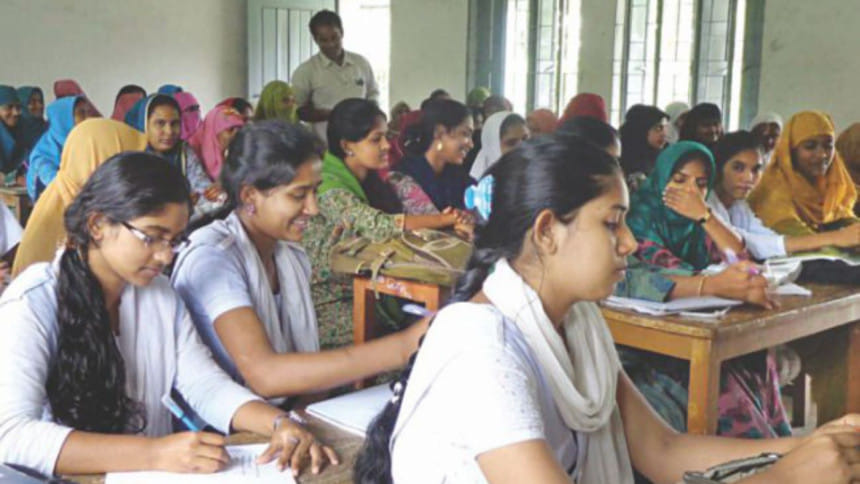
Women in Bangladesh have made their mark in multiple fields, from the farms to the peak of the Himalayas, from the sports arena to high-tech jobs, from the handicrafts industry to the Gono Bhaban. Today, Bangladesh is considered a "role model" in the world with respect to its development in economic, social and women's empowerment. The World Economic Forum recently ranked Bangladesh first in gender equality among South Asian nations for the fourth consecutive year. The Forum's "Global Gender Gap Report 2018" highlights Bangladesh's success in four key areas: education, economic participation, health, and political empowerment.
Bangladesh has topped the Gender Gap Index in terms of closing the gap in the primary and secondary education category. In primary and secondary schools, 51 and 53 percent of students respectively are female. Participation of girls in primary schools is increasing as their overall enrollment rose from 57 percent in 2008 to 95.4 percent in 2017. According to data of the Unesco Institute for Statistics (UIS), the literacy rate for women aged between 15 to 24 years has increased to 69.90 percent in 2016, up from 43.74 percent in 2007. Although the current ratio of women in higher education is 33 percent, female students in top government medical colleges have outnumbered the boys in the past few years. According to official statistics, female students make up around 60 percent of enrolled medical students. In the 2013-14 session, 1,602 female students were enrolled in 23 government medical colleges compared to 1,135 male students. Also, more women graduated from medical colleges than men.
In recent times, women in Bangladesh have also made huge progress in terms of participation in the labour force. Compared to four percent in 1974, female participation in the labour force has increased to 36.3 percent in 2017. The Bangladesh Bureau of Statistics (BBS) Labour Force Survey (2016-17) showed that 20 million women were in the labour force who contributed actively to different socio-economic sectors that have changed the face of the economy. Statistics also show that labour force participation among rural women is much higher (37.6 percent) than urban women (30.8 percent), and women played a crucial role in cultivation and post-harvest operations, managing livestock, horticulture, fisheries, etc., thus improving the economic stability of their households. At present, about 65 percent of women work in agriculture, around 22 percent are in the service sector, and 13.32 percent are in industry. Currently, more than 60 percent of fish farmers in Bangladesh are women.
But unfortunately, in our society, the economic value of much of women's work and their overall contribution go mostly unrecognised and this work remains unpaid. Usually, unpaid work is considered as "voluntary work" or looked upon as "family obligations". According to a study by the Centre for Policy Dialogue (CPD), women who do household chores contribute 76.8 percent to the gross domestic product (GDP), but the cost of their labour is not calculated in the national economy.
We all know that women in the readymade garment (RMG) sector contribute immensely to the economy and are the backbone of the apparel industry's workforce. More than 80 percent of our garment workers are women. Women with little or no education work as domestic help or as day-labourers in the construction of roads, bridges, buildings, etc. They also work in husking mills, weaving factories and in different government and non-government offices and business organisations.
Those who are more educated work as teachers in different educational institutions. Others serve in government offices, healthcare sector, etc. The number of women physicians, engineers, and lawyers is also on the rise and, lately, more and more women have begun to be recruited in military service and in UN peacekeeping operations. They are excelling in government administration and judiciary as well. Presently, there are 1,375,438 government employees, of whom 26.9 percent are female. According to the World Bank, labour force participation of women in Bangladesh is 36 percent—higher than the South Asian average of 35 percent. Bangladesh is ahead of India, where women account for 27 percent of the total labour force, and Pakistan, where the female labour force participation rate is 25 percent. Experts say that if Bangladesh stays on track, female workforce will grow from the current 36 percent to 82 percent over the next decade, adding 1.8 percentage points to GDP growth each year.
According to the World Economic Forum's "Global Gender Gap Report 2018", Bangladesh is the fifth most gender equal country in the world in terms of political empowerment. In the newly-formed government, the speaker, one minister, one state minister and one deputy minister are women, and the total number of women parliamentarians who have been directly elected is 22, including the prime minister. But unfortunately, at a time when women's empowerment has gained momentum, violence against women has steadily been increasing in the country, giving way to doubts about our achievements in women's empowerment. Nearly two out of every three women in the country have been victims of some form of violence or the other. According to a database of the monitoring cell of the police headquarters, 18,668 rape cases were filed across the country between 2012 and 2016. Evidence suggests that acts of violence committed regularly against women include dowry killings, rape, sexual harassment and stalking, acid attacks, physical and mental abuse, and sex trafficking. Early marriage is another factor that does not allow girls to continue with their studies and enter the workforce. At present, 59 percent of girls in Bangladesh are married off before they reach the age of 18 and 22 percent are married off before they are 15.
There is a Chinese proverb that goes, "Women hold up half the sky." But unfortunately, there are many in our society who consider women to be weak and incapable to work and earn an income on their own—according to these people, women are an "economic burden". They try to confine them within the four walls. But what they do not understand is that no nation can tackle the development challenges unless its women are given equal access to opportunities and adequate safety and security. Different surveys have shown that when women earn an income, they reinvest 90 percent of it in looking after their families and spending on food, housing and education. All these components are vital for poverty reduction and promoting sustainable development.
Additionally, educated girls have fewer, healthier and more educated children, who help build healthier communities, accelerate economic activity, arrest major health issues and break cycles of poverty. Therefore, it is imperative that we, as a society, change our primitive mindset that a woman should stay at home and depend on the man to bring food to the table. We need to create a society where women are free to choose, and can live without fear and speak without restrictions.
Abu Afsarul Haider studied economics and business administration at the Illinois State University, USA. Email: [email protected]
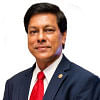



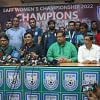
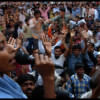
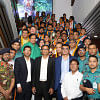



Comments